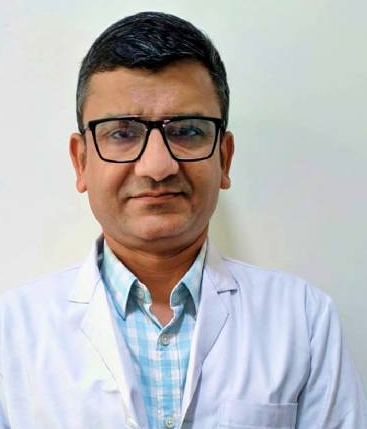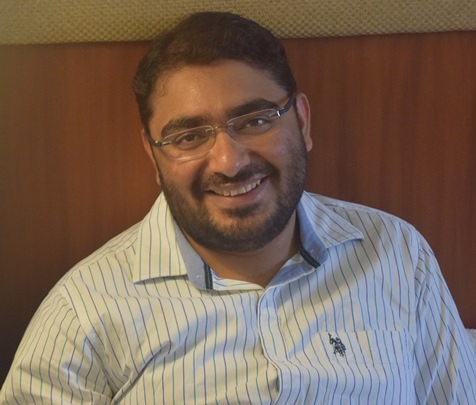Side Effects of Rhinoplasty - Risks, Long Term Complications

Quick Summary
- Rhinoplasty is a cosmetic surgical procedure that aims to change the nose's shape, size, or function.
- While rhinoplasty is generally considered safe, potential side effects can occur in the long term.
- Discussing the potential rhinoplasty risks and benefits with a qualified surgeon before the procedure is essential.
Rhinoplasty, or nose job, is a cosmetic surgical procedure that aims to change the nose's shape, size, or function. Are you doubtful regarding rhinoplasty side effects? While rhinoplasty is generally considered safe, potential side effects can occur in the long term.
Discussing the potential rhinoplasty risks and benefits with a qualified surgeon before the procedure is essential. Is rhinoplasty safe? Continue reading this blog to know more about the same.
Indications of Rhinoplasty
Rhinoplasty can be done for aesthetic or functional reasons. The decision to undergo rhinoplasty should be made in consultation with a qualified plastic surgeon who can evaluate the patient's needs and goals.
The indications for rhinoplasty may include the following:
- Cosmetic concerns: Rhinoplasty can improve the appearance of one's nose by changing its size, shape, or proportion to match the patient's facial features better.
- Breathing difficulties: Rhinoplasty can be done to correct a deviated septum or any other structural abnormalities that may cause breathing difficulties.
- Trauma: Rhinoplasty can be done to correct a nose injured or broken due to trauma.
- Congenital defects: Rhinoplasty can be done to correct genetic defects or abnormalities that affect the appearance or function of the nose.
- Ageing: Rhinoplasty can be done to address changes to the nose that occur with ageing, such as drooping or a more prominent hump.
Care before Rhinoplasty
Before undergoing rhinoplasty, it is essential to take certain precautions to ensure a safe and successful procedure. Here are some care tips to consider:
- Choose a qualified surgeon: Research and choose a skilled plastic surgeon who is experienced in rhinoplasty.
- Avoid medications that can increase bleeding: Certain medications, such as aspirin, ibuprofen, and blood thinners, can increase the risk of bleeding during and after surgery. Avoid taking these medications for several weeks before the procedure.
- Quit smoking: Smoking can interfere with healing and increase the risk of complications. Quit smoking at least two weeks before and after surgery.
- Stay hydrated: Drinking plenty of water can help to promote healing and reduce the risk of complications.
- Prepare for recovery: Take time off work or other activities to rest and recover after surgery. Arrange for someone to drive you home and help with tasks as needed.
- Follow preoperative instructions: Follow the instructions provided by your surgeon for preparing for surgery, including fasting before the procedure and washing the face and hair with a special antibacterial soap.
By following these care tips, patients can help to ensure is rhinoplasty safe or not.


Side effects of Rhinoplasty
Like any surgical procedure, there are some rhinoplasty side effects. It's important to discuss the rhinoplasty risks and potential side effects with your surgeon before deciding to undergo the procedure. They can provide specific information based on your circumstances and help you make an informed decision.
Some common rhinoplasty risks and complications include:
- Bleeding: There is a risk of bleeding during and after the surgery, which can cause swelling and bruising.
- Infection: There is a chance of infection following surgery, which can be treated with antibiotics.
- Poor wound healing: The incisions during rhinoplasty can take longer than expected or may not heal properly, resulting in scarring.
- Unsatisfactory cosmetic result: In some cases, the final result of the surgery may not be as desired, leading to dissatisfaction with the nose's appearance.
- Breathing problems: Rhinoplasty can affect the function of the nose, including breathing. Some people may experience difficulty breathing through their noses after surgery.
- Pain: Some discomfort or pain is normal after surgery, and pain medication can be prescribed to help manage it.
- Swelling: Swelling is common after rhinoplasty and can take several weeks or months to resolve fully.
- Bruising: Bruising is common after rhinoplasty and typically disappears within a few weeks.
- Dry nose: The inside of the nose may feel dry or crusty after surgery, and a saline spray or ointment may be recommended to moisturise the area.
- Numbness: The nose and surrounding areas may numb after surgery, but this typically resolves within a few weeks.
- Septum perforation: Also known as a hole in the septum, septal perforation can occur when the surgeon accidentally creates a hole in the septum while reshaping the nose.
This can cause nasal congestion, frequent nosebleeds, whistling sounds when breathing, and a dry or sore throat. The risk of developing a septal perforation during rhinoplasty is relatively low but can occur.
Factors like having a deviated septum or a history of nasal surgery or trauma can increase the risk of this complication.
Preventive Measures to be taken
There are various steps that you can take to help minimise the rhinoplasty side effects and optimise your recovery after a rhinoplasty:
- Following your surgeon's instructions carefully after the procedure, including any instructions for caring for your incisions, taking medications, and avoiding certain activities, is essential.
- Getting plenty of rest after rhinoplasty can help your body heal and recover more quickly.
- Avoiding strenuous activities like heavy lifting or exercise can help reduce the risk of complications and promote healing.
- Keeping your head elevated while sleeping or resting can help reduce swelling and bruising.
- Applying ice packs to your nose can help reduce swelling and discomfort.
- Avoid blowing your nose or engaging in activities that increase pressure in your nose, such as sneezing or coughing, for at least a week after the surgery.
- Protect your nose from the sun by wearing a hat or sunscreen for at least a month after the surgery.
- Avoiding alcohol and tobacco may help reduce the risk of complications and promote healing.
When to see a Doctor?
Experiencing rhinoplasty surgery side effects? It is essential to follow up with your surgeon after rhinoplasty as directed. You should also contact your surgeon or seek medical treatment if you experience any of the following rhinoplasty side effects post-surgery:
- Severe pain that is not relieved by pain medication
- Persistent fever
- Heavy bleeding or persistent nasal discharge
- drainage from the incision sites
- Redness, swelling
- Difficulty breathing or swallowing
- Chest pain or shortness of breath
- Nausea or vomiting
Takeaway
Rhinoplasty side effects may include pain, swelling, bruising, dryness, numbness, difficulty breathing, and an unsatisfactory cosmetic result. These side effects are typically temporary and can be managed with medications and other treatments. Following your doctor's advice and seeking medical attention is crucial if you experience severe or concerning symptoms after the surgery.
To minimise the rhinoplasty side effects and optimise your recovery, it is important to avoid strenuous activities, keep your head elevated, apply ice packs, protect your nose from the sun, and avoid alcohol and tobacco. If you or your loved ones have doubts associated with Rhinoplasty side effects, contact our team of experts at HexaHealth. Our expert team of doctors can consult you and provide you with the proper treatment. Get in touch with us TODAY!
Suggested Reads
To read more about rhinoplasty, visit the following links:
Frequently Asked Questions
Does rhinoplasty have long-term side effects?
What happens to rhinoplasty after years?
How many years will rhinoplasty last?
Can your nose collapse years after rhinoplasty?
Will a nose job change my life?
A nose job can positively impact a person's self-esteem and confidence, but it will not necessarily change a person's life significantly. While rhinoplasty can improve the appearance and function of the nose, it's important to have realistic expectations about the procedure.
It may boost confidence and self-esteem, but it's unlikely to change your life fundamentally.
What are the disadvantages of rhinoplasty?
Can rhinoplasty be permanent?
Can rhinoplasty cause blindness?
How many times can rhinoplasty be done?
Can rhinoplasty affect the brain?
Can rhinoplasty cause death?
Does rhinoplasty weaken the nose?
Is rhinoplasty good for health?
Is rhinoplasty safe?
Last Updated on: 18 March 2023
Reviewer

Dr. Aman Priya Khanna
MBBS, DNB General Surgery, FMAS, FIAGES, FALS Bariatric, MNAMS General Surgery
13 Years Experience
Dr Aman Priya Khanna is a highly experienced and National Board–Certified Laparoscopic, GI, and Bariatric Surgeon with over 13 years of clinical expertise.
He is widely regarded as one of the best bariatric surgeons in Ahmedabad, ...View More
Author

An enthusiastic writer with an eye for details and medical correctness. An avid reviewer and publisher. She emphasises authentic information and creates value for the readers. Earlier, she was involved in making ...View More
Expert Doctors (10)
NABH Accredited Hospitals (5)
Latest Health Articles
Related Treatments



















 Open In App
Open In App